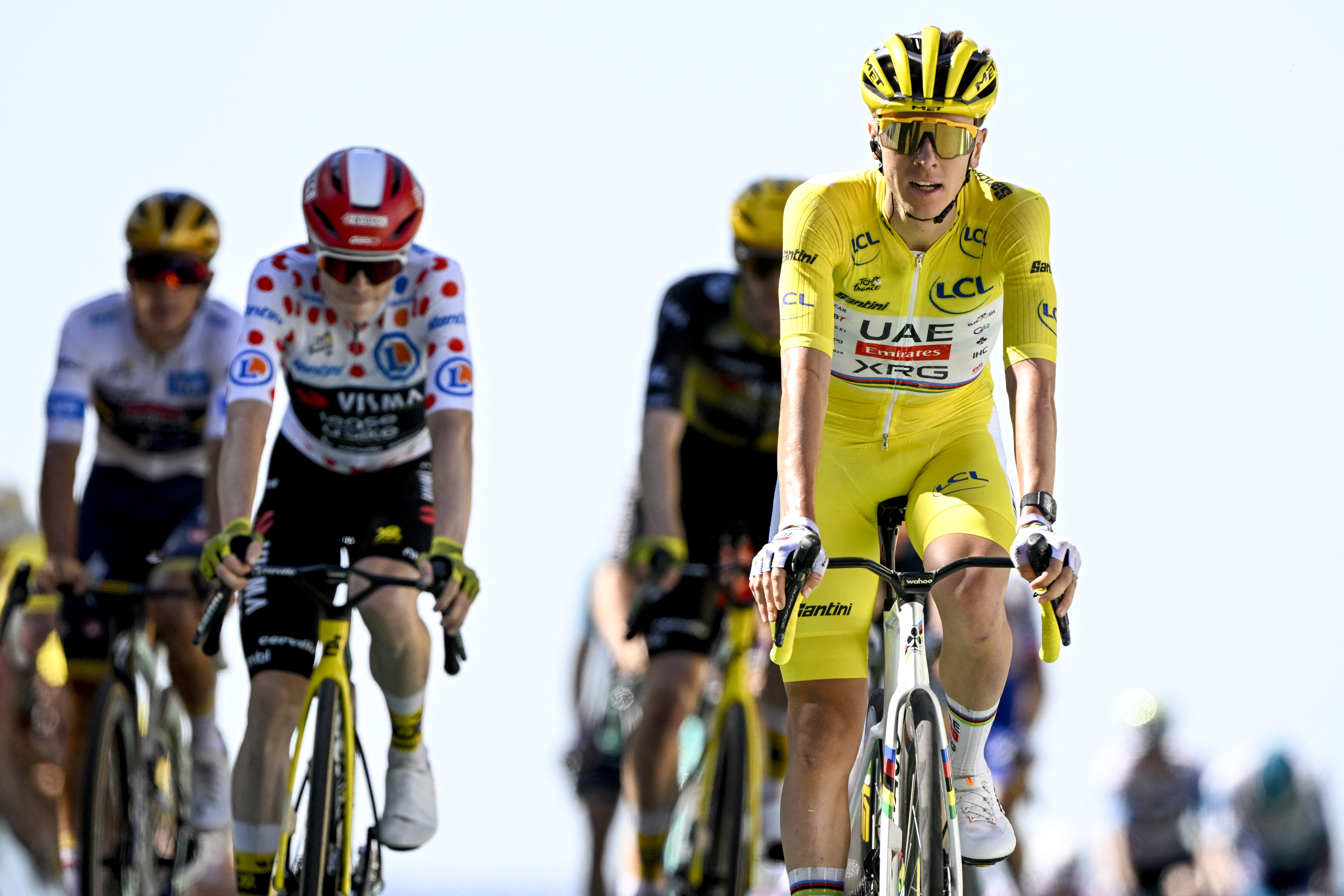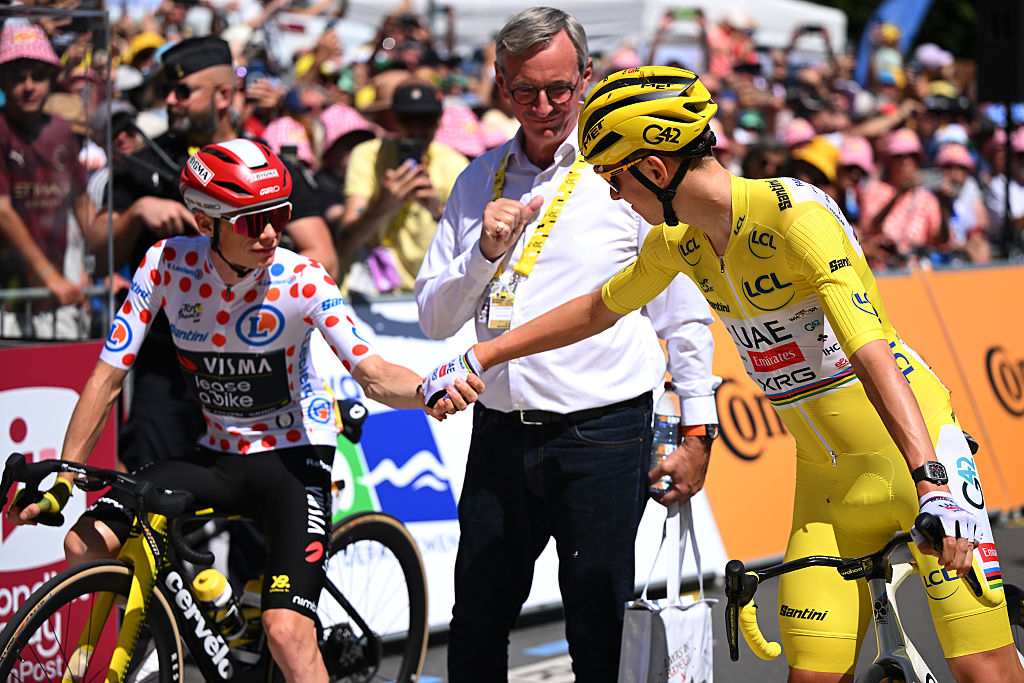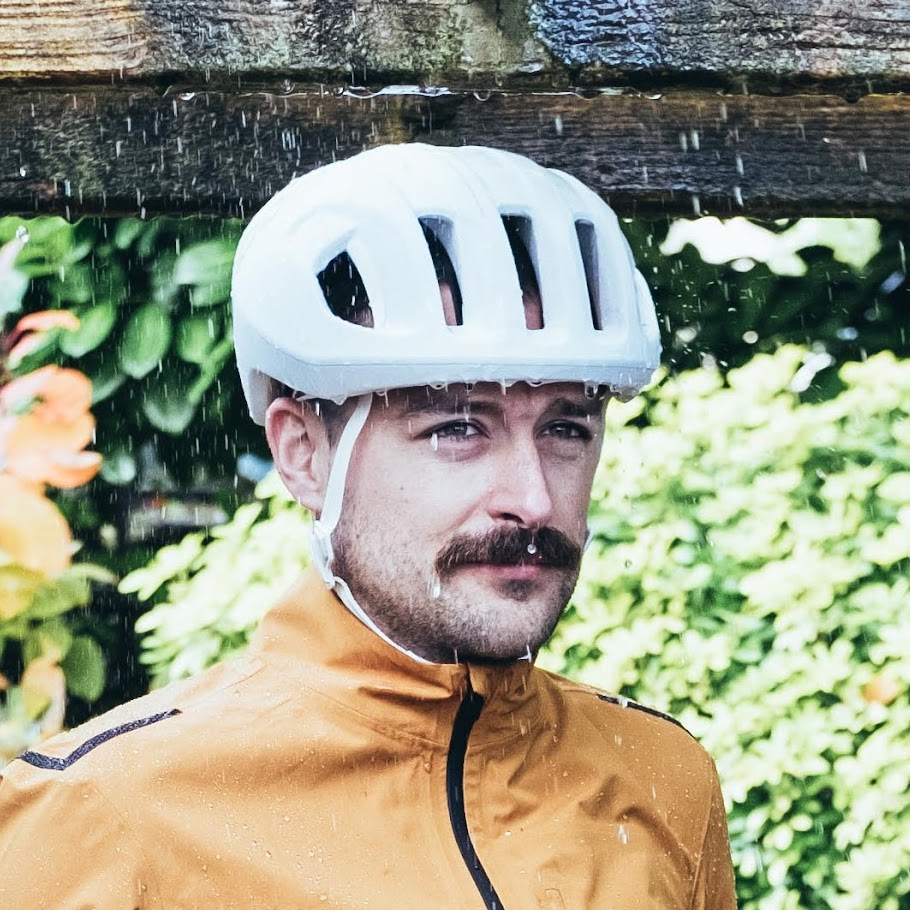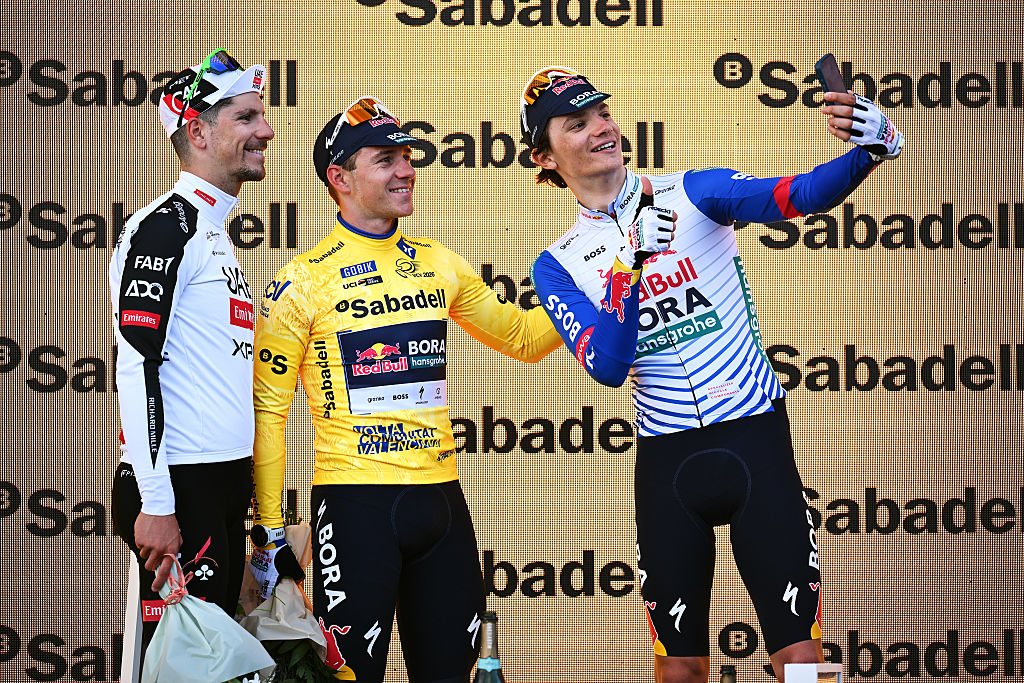Why doesn't Tadej Pogačar want to lead the Tour de France yet?
And why do his rivals want him in the yellow jersey? The three-week-long chess match continues to unfold

The latest race content, interviews, features, reviews and expert buying guides, direct to your inbox!
You are now subscribed
Your newsletter sign-up was successful
The Tour de France is very often likened to a three-week game of chess. Tactical decisions are being made almost nonstop: should I attack now or wait, should we send someone back for drinks, do we chase the breakaway or let it go, and so on.
Most of them are easy to understand, but occasionally, a team will make a decision that seems to go against common sense.
The current race leader and hot favourite to win the general classification, Tadej Pogačar, has been at the centre of two such instances in recent days, including one where he actively gave away the race lead, while his big rival Jonas Vingegaard tried to ensure Pogačar stayed in the lead.
Here we're going to unpack why.
It all started when something unusual happened on stage 4. Tim Wellens, a key domestique (support rider) for out-and-out favourite Pogačar, darted off the front of the peloton to claim a solitary point over a relatively small hill (in the context of the mountains yet to come). In doing so, he stole the polka dot jersey - the one awarded to the best climber in the race - from his team leader at the end of the day.
It was a surprising move, as a rider like Wellens usually wouldn't have much interest in taking a climber's jersey, but there was more to it than met the eye.
Following the stage, during the endless media rounds and following the protracted podium ceremonies, Wellens explained that “Our only goal is yellow in Paris.”
The latest race content, interviews, features, reviews and expert buying guides, direct to your inbox!
It was no disrespect to the polka-dot jersey, Wellens said, but as it's not a true goal for the Slovenian, he had to prioritise.
“Tadej also likes this leader's jersey, but it is true that rest is Tadej's priority in the Tour."
Put simply, then, Wellens' decision to take the jersey meant that Pogačar didn't need to hang around for the podium ceremony, nor the extended media interviews, and could instead head straight back to the team bus to put his feet up, allowing him an extra 30-60 minutes of recovery and rest ahead of the next day.
There was also the fact that Pogačar had the chance to win the next day, and would do so in the world champion's rainbow jersey if he lost the polka dots – both of which he did.
As an isolated incident, this is novel, certainly enough to raise eyebrows in the commentary booth at least, following some head scratching as to why Wellens was denying his teammate what, for some riders, would be a highlight of their race.

Not an isolated incident
An isolated incident it was not, however, and following the inevitable shake-up in the pan-flat time trial on stage 5, stage 6 saw Pogačar back in the yellow jersey and at the head of the race with a 42 second advantage over his closest rival, but he seemed like he couldn’t wait to hand the jersey off to anyone willing and able to peel it off his shoulders.
Following the time trial, he already appeared to be encouraging the inevitable breakaway for the following day:
"I don't know what can happen tomorrow. Maybe it's a day for the breakaway and they can take the yellow jersey as well," he said ahead of stage 6.
To compound this trend, on a roasting day in Normandy that ultimately saw Ben Healy claim his first Tour stage win from a breakaway, the chess game continued to unfold in the peloton behind.
Jonas Vingegaard, Tadej Pogačar’s main rival for overall victory, set his team to work in the final 30km of racing to close the gap to the breakaway out front with the intention, counterintuitively as it may seem, of ensuring Pogačar stayed in the race lead.
UAE Team Emirates-XRG had been happily letting the gap go out all day, to over six minutes at one point, clearly content to lose the race lead to Mathieu van der Poel, who had made it into the breakaway, and was 1m 44s behind on GC at the start of the day.
When Visma-Lease a Bike heard that Van der Poel was dropped from the breakaway and that his advantage over the peloton was shrinking fast, they saw a chance to deny UAE the possibility of giving up the lead, and in turn force Pogačar to do the podium ceremony and media obligation that evening.
Ultimately, they failed. It came down to a single second, but Pogačar lost the lead to the Dutchman.
These unusual tactics certainly drew the ire of a visibly frustrated Pogačar, with the Slovenian remarking after the stage finish:
"Visma tried to do, I don't know what… They went hard, so we just followed them," he said, putting paid to the idea that it was him trying to chase down yellow – quite the opposite.
A post shared by Cyclingnews (@cyclingnews_feed)
A photo posted by on
Why avoid the yellow jersey?
Why, then, are the biggest riders at this year's Tour de France actively trying to avoid leading the race, and their rivals trying to make it so they can't?
Cycling, and especially the Tour de France, is a sport of marginal gains. It’s the most stressful race of the year for each rider who participates, such is the heightened importance and media scrutiny.
We've touched on it above, but at the end of each stage, the stage winner, and the leader of each classification – overall general classification, climber, sprinter, and young rider – has quite an onerous round of media interviews, podium presentations, and autograph signings that otherwise keep them from immediately starting their much needed downtime and recovery.
Recovery has become almost as important as training in cycling, and post-stage bowls of rice, cherry juice, massage, ice baths, and inflatable compression pant sessions are all par for the course nowadays, with only some of these compatible with the juggernaut that is the mandatory media circus.
In addition to that, it is often the responsibility of the race leader and his team to control the race in the hours before the action kicks off, piling more stress and exertion onto a team whose goal isn’t to lead the race, but to win it at the end.
While for many riders simply spending a day in the yellow jersey is the privilege of a lifetime, let alone a career, for those few riders who are actually in with a shout of claiming overall victory, having it any sooner than necessary is an inconvenience they could do without.
In a sport where every little detail counts, working to avoid these responsibilities – or making it so your rival has to face them – has become part of the chess match, especially when riders are so well-matched physically. We've already seen it playing out in the first week, so don't be surprised if this race outside the race continues as the Tour rumbles on.
The Tour de France is the biggest race in cycling, and a Cyclingnews subscription offers you unlimited access to our unrivalled coverage. Get all the breaking news and analysis from our team on the ground in France, plus the latest pro tech, live race reports, and a daily subscriber-only newsletter with exclusive insight into the action. Find out more.

Will joined the Cyclingnews team as a reviews writer in 2022, having previously written for Cyclist, BikeRadar and Advntr. He’s tried his hand at most cycling disciplines, from the standard mix of road, gravel, and mountain bike, to the more unusual like bike polo and tracklocross. He’s made his own bike frames, covered tech news from the biggest races on the planet, and published countless premium galleries thanks to his excellent photographic eye. Also, given he doesn’t ever ride indoors he’s become a real expert on foul-weather riding gear. His collection of bikes is a real smorgasbord, with everything from vintage-style steel tourers through to superlight flat bar hill climb machines.
You must confirm your public display name before commenting
Please logout and then login again, you will then be prompted to enter your display name.
